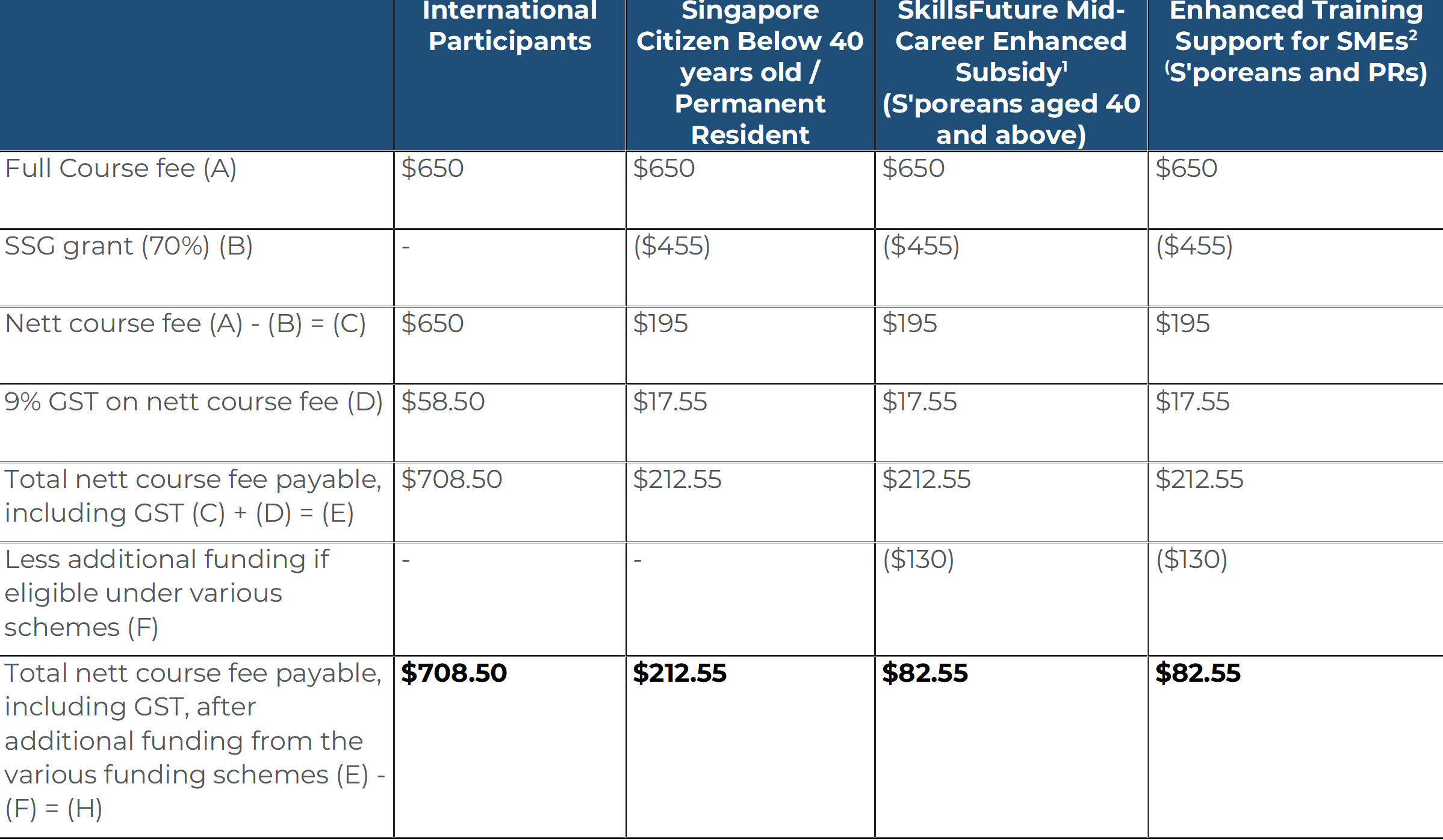Dates: 26 June, 28 August and 09 October 2024
Level: Basic
Time: 9am to 5pm
Venue: Online via ZOOM
In this digital world, we all have a responsibility to protect ourselves and the people we interact with. This all starts with understanding cybersecurity
Designed for those with little or no prior knowledge of computer security, this course will provide an overview of what cybersecurity is and the various IT security measures that are currently engaged to protect various IT assets and resources. Participants will have a baseline understanding of common cyber security threats, vulnerabilities, and risks. Participants will also be introduced to the basics of cryptography, security management, wireless networking, and organizational policy. At the end of the course, a quiz will be held to test your understanding of the different technical security measures.
Topics
- What is Cybersecurity?
- IT Security Overview
- Security Needs (CIAN)
a) Confidentiality
b) Integrity
c)Authentication
d) Non-repudiation
Technical Considerations
- Data Security
a) Types of attacks
b) Encryption and Cryptography
c) Hash Value/Digest
d) Digital Signature
e) Digital Certificate - Network Security
a) Internet/Intranet/Extranet
b) Wireless Network
c) Types of Attacks
d) Firewalls/Rules
e) VPN - Application Security
a) Types of Attacks
b) Java, .NET security
c) Biometrics
d) Database security
Organization Practices and Processes
- Security Administration
a) COBIT
b) Incident Response
c) Patch Management - Physical Security
- Secure Software Development (SSD)
a) Benefits of SSD
b) Existing development models vs SSD - Secure Workplace and Personal Practices
a) Types of Cybercrimes
b) Augmenting Password Security
c) Keep Away from Spies, Strangers and Imposters
d) Device Vulnerabilities
e) Personal Data and Information (PDPA)
f) Regulations and Policies
g) Continuing Education - Assessment (Quiz)
Cecilia Nathen has a Bachelor in Accountancy degree and a Masters in Public Policy and Management. Her span of work experience includes auditing, finance, human resource, customer relationship, corporate communication and organisation development.
Cecilia is currently a Certified Information Privacy Manager and holds certifications in Information Security as well as AI Governance and Ethics. She is an adjunct lecturer with SUSS and other institutions of higher learning and does course development work for such institutions. She currently teaches in areas relating to cybersecurity, data privacy, governance and ethics.
Please submit the following documents to cet@suss.edu.sg:
- Coloured copy (back and front) of NRIC for Singaporeans and PRs, or "Employment"/"S" Pass for foreign applicant
- Application form

1 Mid-Career Enhanced Subsidy: Singaporeans aged 40 and above may enjoy subsidies up to 90% of the course fees.
2 Enhanced Training Support for SMEs: SME-sponsored employees (Singaporean Citizens and PRs) aged 21 and above may enjoy subsidies up to 90% of the course fees.
- Participants are required to achieve at least 75% attendance and pass any prescribed examinations/assessments or submit any course/project work (if any) under the course requirement.
- Participants are required to complete all surveys and feedbacks related to the course.
- The course fees are reviewed annually and may be revised. The University reserves the right to adjust the course fees without prior notice.
- Singapore University of Social Sciences reserves the right to amend and/or revise the above schedule without prior notice.
For clarification, please contact the SUSS Academy via the following:
Telephone: +65 6248 0263
Email:
CET@suss.edu.sg